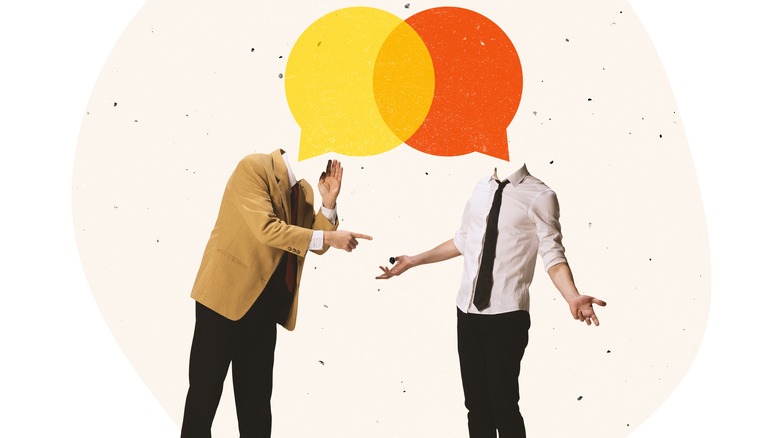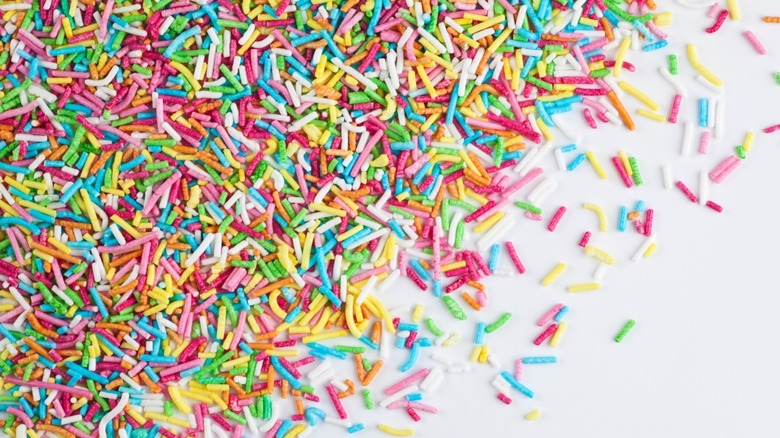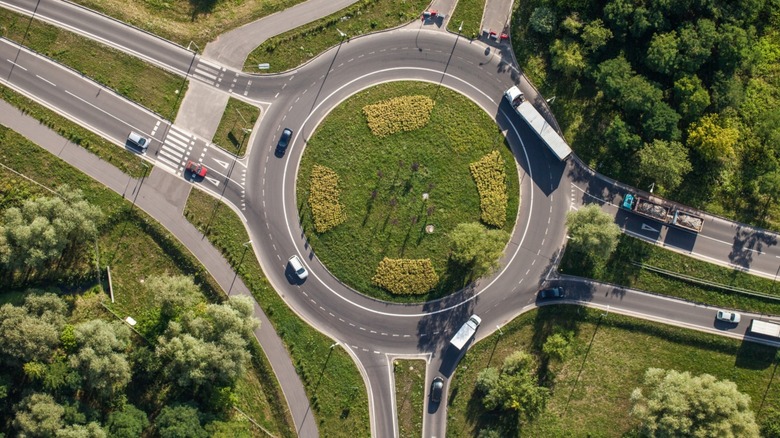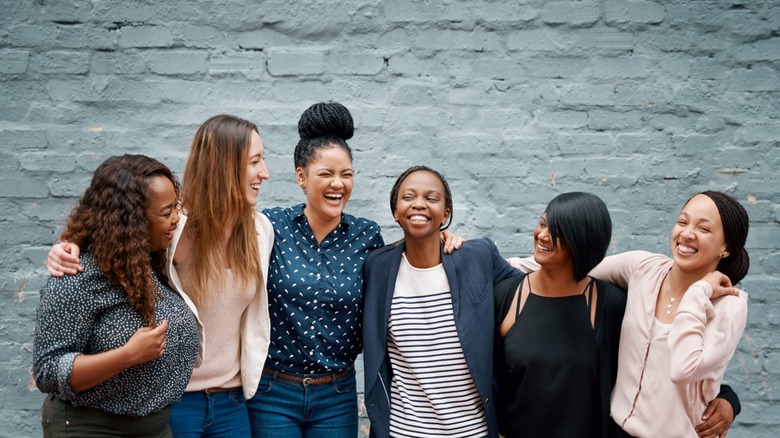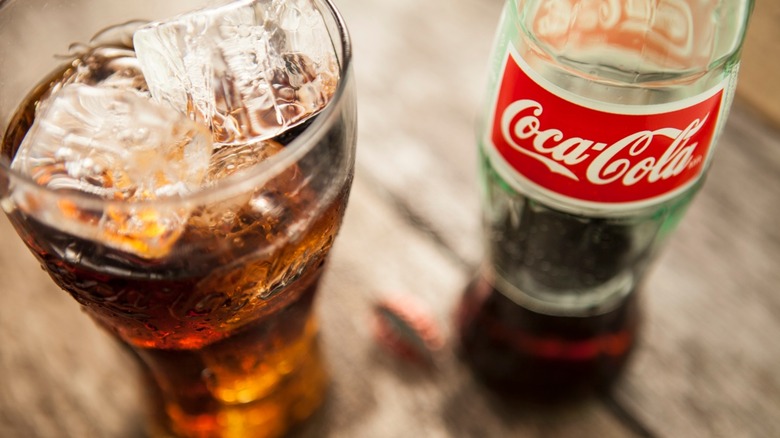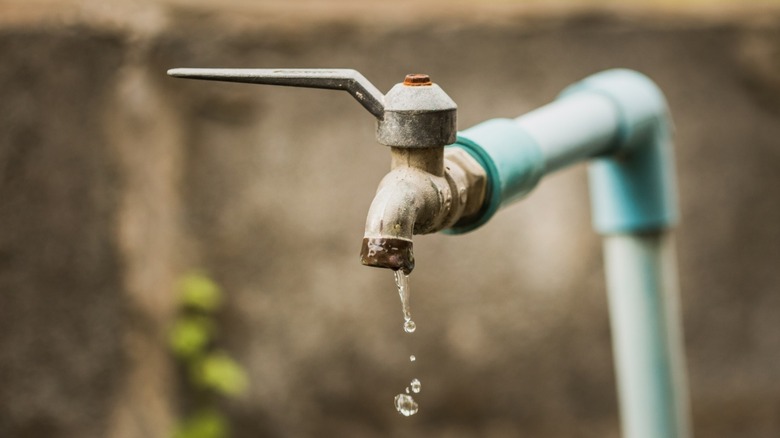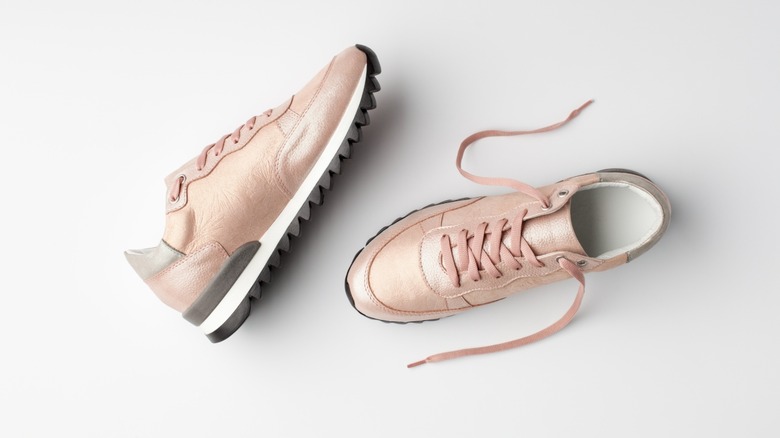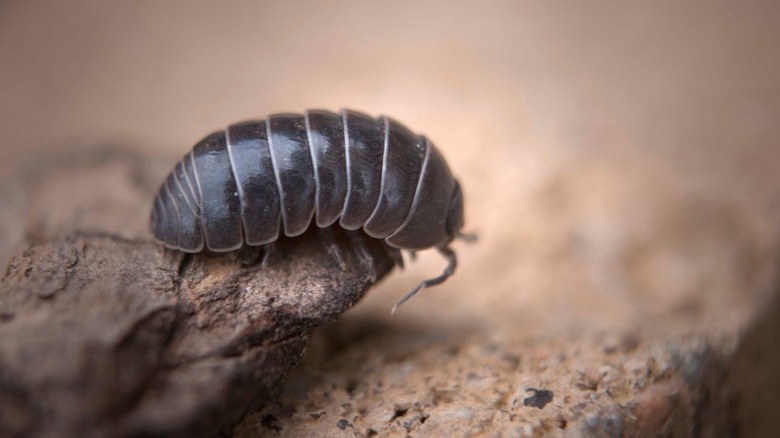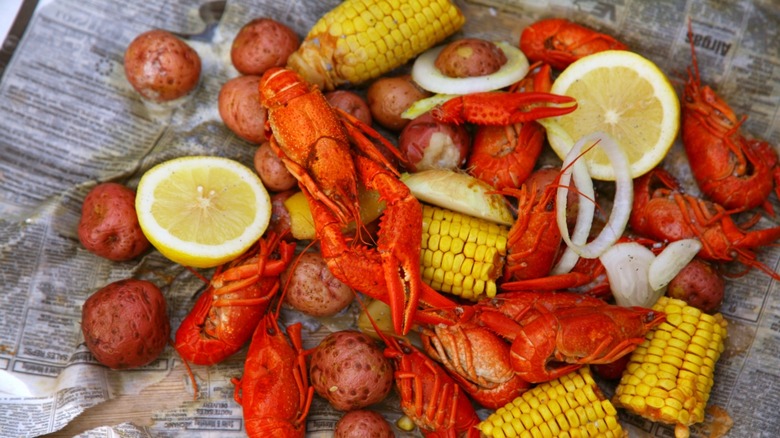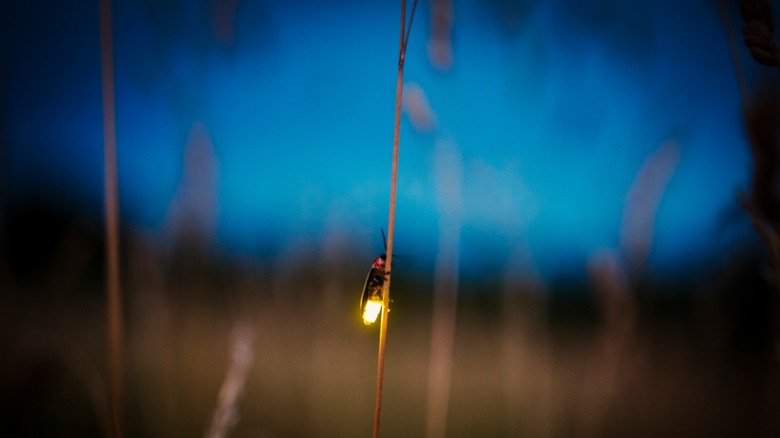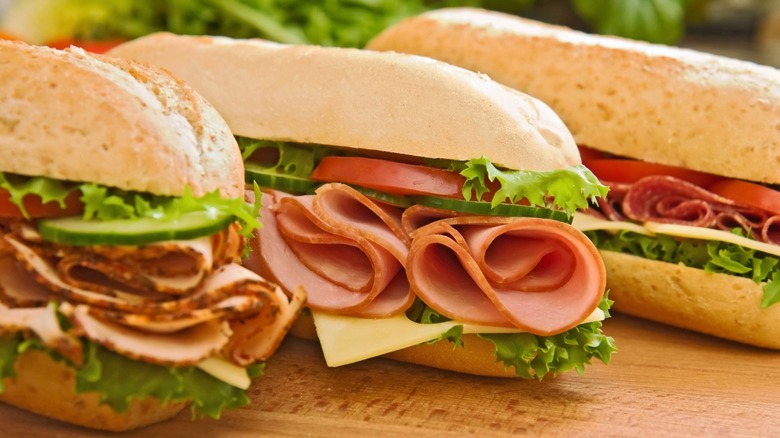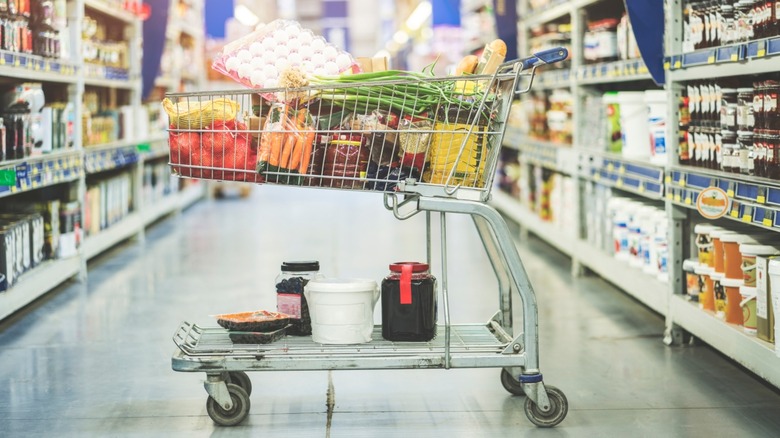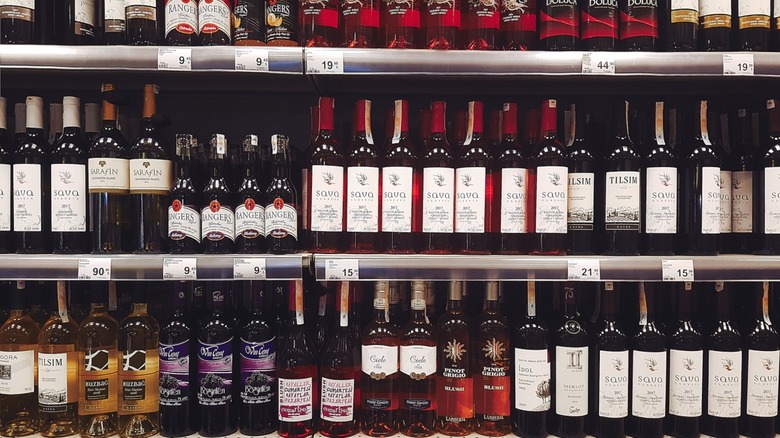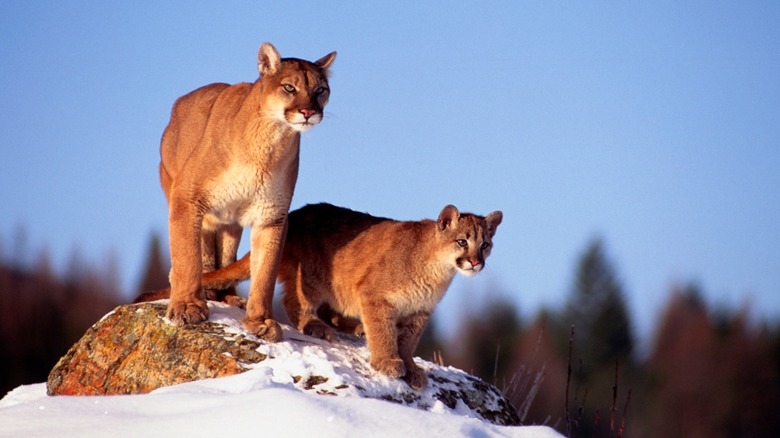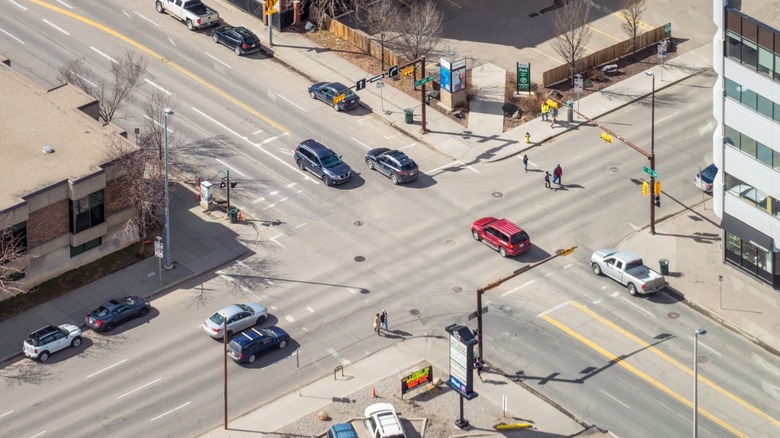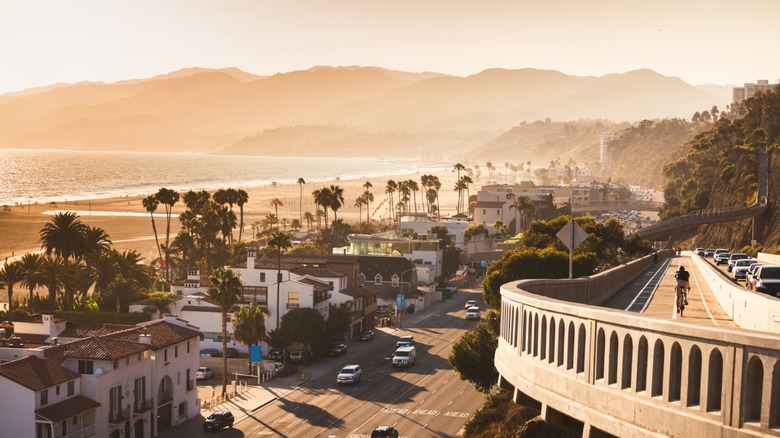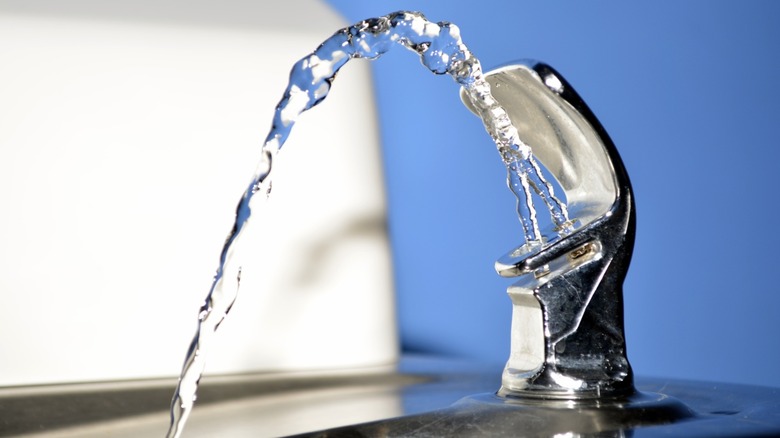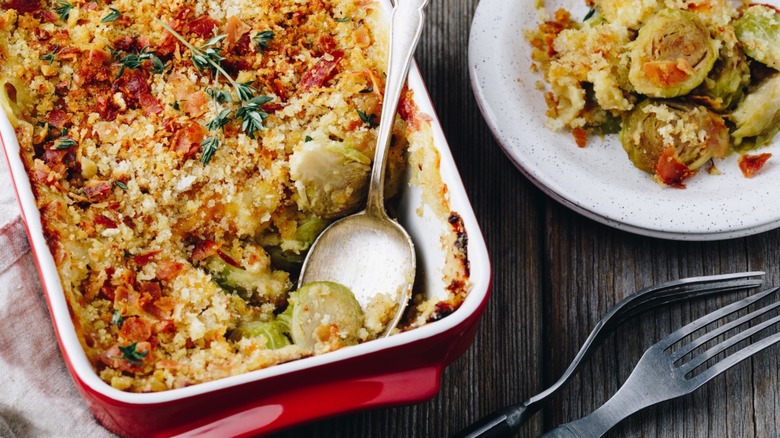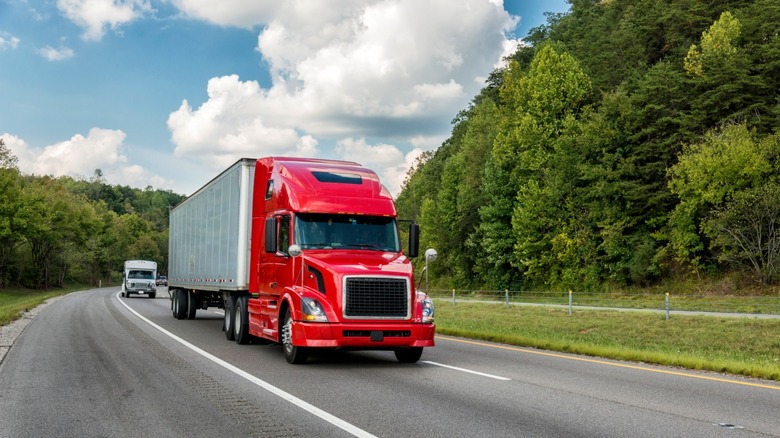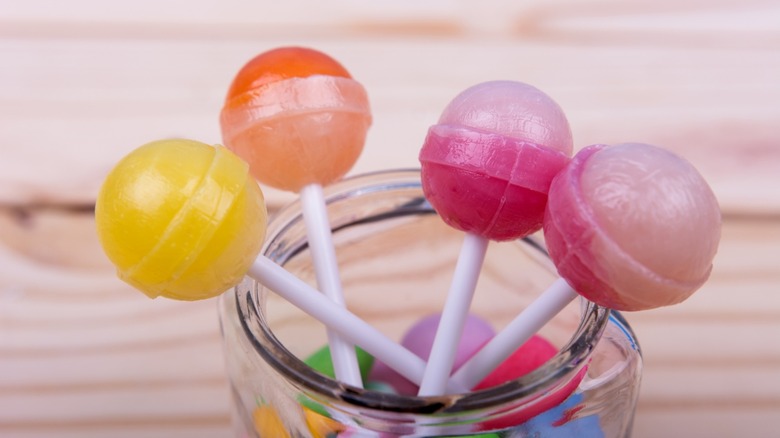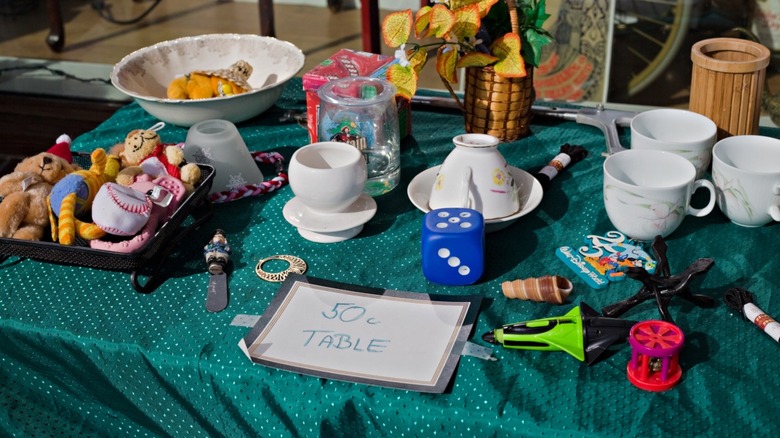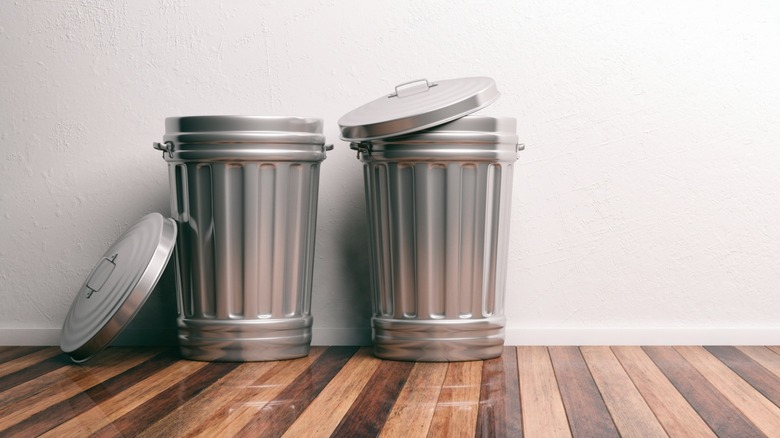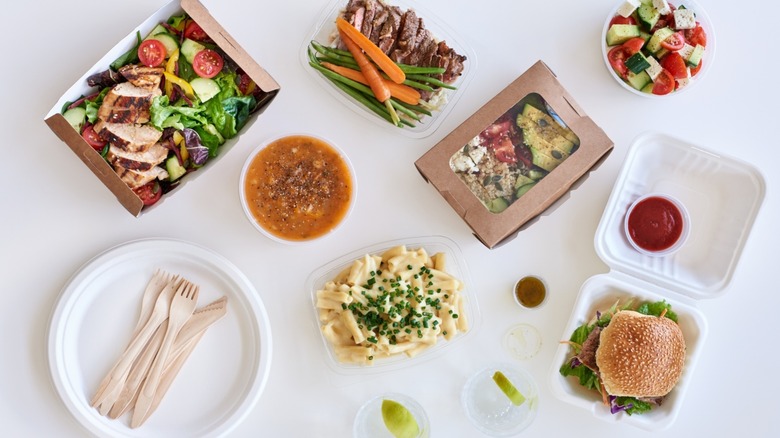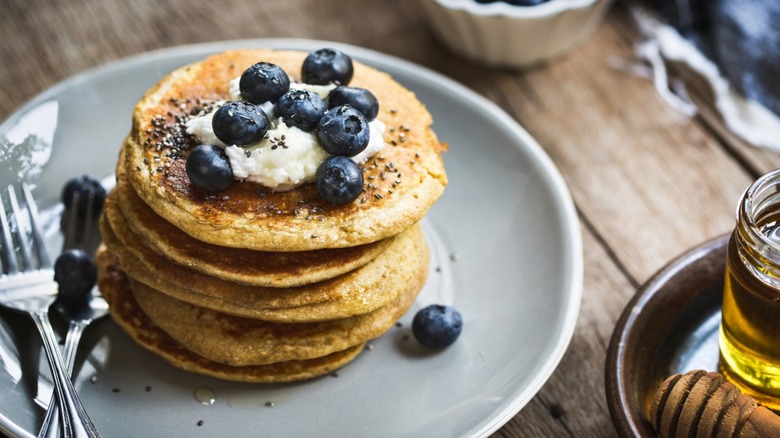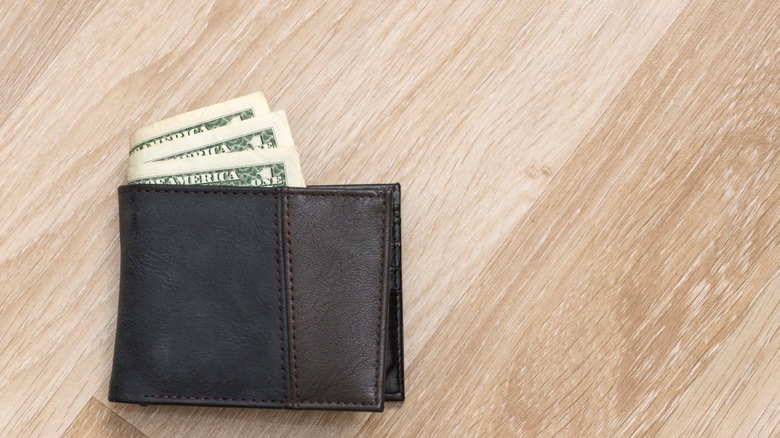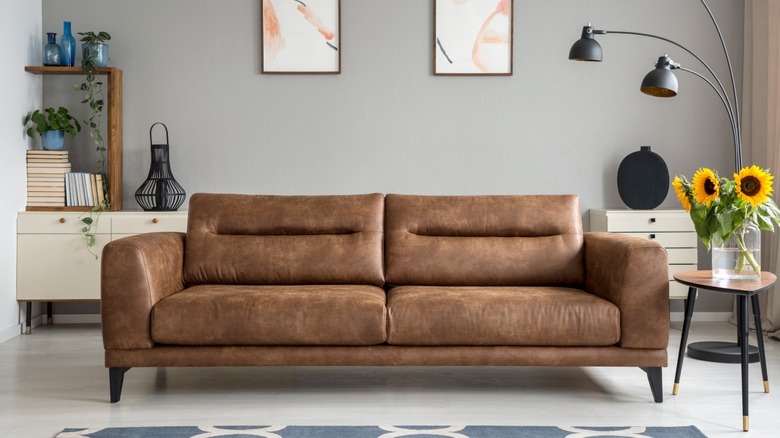Sofa Vs. Couch: Word Debates In The US
The English language is spoken by more than 1.5 billion people around the world — but we don't all speak it exactly the same way, even within the same country. Put someone from Louisiana together with someone from Massachusetts, for instance, and they might not understand one another. That's because American English is so diverse.
Accents and pronunciations vary between regions. For example, it's easy to tell you're from the South if you pronounce "caramel" with three syllables. Different states also have their own unique slang words that describe things that don't exist elsewhere or that come from languages spoken by people who settled there.
Other English terms have spread across entire regions, dividing the country into sections based on different words people use for the same object — and things can get heated when people argue that their region's term is superior. Whether you call it a "sofa" or a "couch," here are 26 word variations that are a dead giveaway of where you're from.
'Sprinkles' vs. 'jimmies'
Most Americans refer to decorative sugar strands of any color as sprinkles, but in New England and the Mid-Atlantic, chocolate sprinkles are known as jimmies.
'Roundabout' vs. 'traffic circle'
Circular intersections might've first developed in Europe, but they migrated to America and acquired new regional names. Most of the western part of the country calls them "roundabouts," while in the Southeast and Mid-Atlantic, they're "traffic circles." In New England, pockets of Maine, Massachusetts and New Hampshire call them "rotaries."
'Y'all' vs. 'you all'
Using "y'all" is a quintessentially Southern way to refer to a group of people. Its usage spans from Texas to the Atlantic and from the Gulf to the Mason-Dixon line. The only odd ducks in the mix are people in South Florida, since many of them are transplants from the North. In Pennsylvania, don't be surprised to hear "yinz" and "youse" instead.
'Coke' vs. 'pop'
A carbonated soft drink is known as a "soda" in the West and Northeast, a "pop" in the Midwest and a "Coke" regardless of brand in parts of the South, where the Atlanta-based Coca-Cola reigns supreme. The nickname "pop" comes from the sound the soda makes when opened.
'Faucet' vs. 'spigot'
A valve where water comes out is generally called a "faucet," but in the South, especially if the tap is outside, it's called a "spigot" or "spicket."
'Tennis shoes' vs. 'sneakers'
They're called "tennis shoes" in most of the country, while the Northeast refers to the same footwear as "sneakers." There are also pockets of people in the Midwestern cities of Chicago and Cincinnati that say "gym shoes."
'Roly poly' vs. 'pillbug'
A small grey bug that can roll up into a tight ball when disturbed is known as a "pillbug" in the West and Northeast, but it's a "roly poly" in the South, one of many quaint Southern ways of saying things. It's also called a "doodlebug" or "potato bug" in other pockets of the country.
'Crawfish' vs. 'crayfish' vs. 'crawdad'
There are multiple names around the country for the freshwater crustaceans that resemble small lobsters. In the South, they're "crawfish." On the East Coast through Great Lakes region, they're "crayfish," and in the Midwest, they're "crawdads." Regardless of what you call them, they're tasty.
'Lightning bug' vs. 'firefly'
Flying bugs that can chemically produce light in their abdomens have a couple of distinctly regional names in the United States. From the South up into the Midwest and Mid-Atlantic, they're "lightning bugs," while in the Northeast, Upper Midwest and West, they're "fireflies."
'Sub' vs. 'hero' vs. 'hoagie'
A long sandwich filled with meats, cheese, vegetables and condiments is known as a "submarine sandwich," or "sub" for short in most of the country. The term replaced another Northeastern term, "grinder," in popularity, though that term is still in use as well. This kind of sandwich is also called by a few city-specific nicknames. It's known as a "hero" in New York and a "hoagie" in Philadelphia.
'Shopping cart' vs. 'buggy'
Though it's known as a "shopping cart" in most of the country, in the South, you get a "buggy" to put your groceries in while shopping at the supermarket.
'Liquor store' vs. 'ABC store'
Most of America calls a shop where you buy alcohol a "liquor store," but there are some regional exceptions. North Carolinians and Virginians head down to the "ABC Store," a nickname that comes from the Alcoholic Beverage Control commission that ran the state liquor stores. In Michigan, a liquor store might be called a "party store," while in New England it's called a "package store" because the alcohol is sold in its packaging.
'Mountain lion' vs. 'cougar'
Mountain lion, puma, cougar, panther — there are many names for the large, wild cats found across the Americas. Today most people in the U.S. call it a "mountain lion," despite it not being a lion at all. Southeasterners use "panther," while "catamount" is used in Vermont and New Hampshire. "Cougar" and "puma" are names used in the western United States.
'Highway' vs. 'freeway'
A big road on which you can drive fast is generally called a "highway" in most of the United States, but on the West Coast, and in California in particular, it's referred to as a "freeway." Some folks in the Midwest and Northeast will opt for "expressway."
'Kitty-corner' vs. 'catty-corner'
English speakers have butchered the French word "quatre," meaning four, in different ways, so different regions have their own version of an expression to indicate something is diagonally opposite on one of four corners. People in the South are more likely to say "catty-corner," while elsewhere in America its "kitty-corner."
'Hella' vs. 'wicked'
When trying to imitate someone from either coast, other Americans often opt for the regional slang for "very" used by each. In the Northeast, particularly around Boston, it's "wicked," while on the West Coast, it's "hella."
'Water fountain' vs. 'drinking fountain' vs. 'bubbler'
"Water fountain" is used predominantly on the West Coast, while "drinking fountain" is the popular term on the East Coast and in the South. Parts of New England and Wisconsin are unique in that they use the term "bubbler."
'Casserole' vs. 'hotdish'
Food baked in the oven and served in a large, deep pan is called a "casserole" in most of the country. But in the Upper Midwest, a "hotdish" is what you'd call a food served in such a vessel.
'Semi' vs. '18-wheeler'
A tractor-trailer or a semi-trailer truck used to haul goods cross-country is known as a "semi" for short across most of the country. But in the Gulf states of Texas, Louisiana, Mississippi and Alabama, it's called an "18-wheeler."
'Lollipop' vs. 'sucker'
Hard candy on a stick is called a "sucker" in the South and Midwest, while the rest of the country opts for "lollipop."
'Garage sale' vs. 'yard sale'
The difference between these terms isn't really where the sale is located but where you are in the United States. Selling unwanted stuff in front of your house is called a "yard sale" on the East Coast and a "garage sale" most everywhere else, though some state-specific slang uses other words such as a "tag sale" or "rummage sale" instead.
'Garbage can' vs. 'trash can'
The Pacific Northwest and upper Midwestern states use "garbage can," while "trash can" is the more commonly used option in the South and Southwest.
'Carryout' vs. 'takeout'
Getting prepared food packaged up "to go" in order to eat it elsewhere is called "takeout" by the majority of Americans, while "carryout" is used in the Midwest.
'Pancake' vs. 'flapjack' vs 'hotcake'
In American English, a thin, round flat breakfast cake is most often called a "pancake," though regional variations "flapjack" and "hotcake" still persist in parts of the West and North, respectively.
'Billfold' vs. 'wallet'
While the rest of the country calls it a "wallet," the case you keep in a purse or pocket to hold your money and cards is called a "billfold" in the South.
'Sofa' vs. 'couch'
While many people use these terms interchangeably, most Americans opt for "couch", except for New Englanders, who tend to call a long upholstered seat a "sofa." But what about a chaise lounge? Well, that's a word that Americans made up not too long ago.
